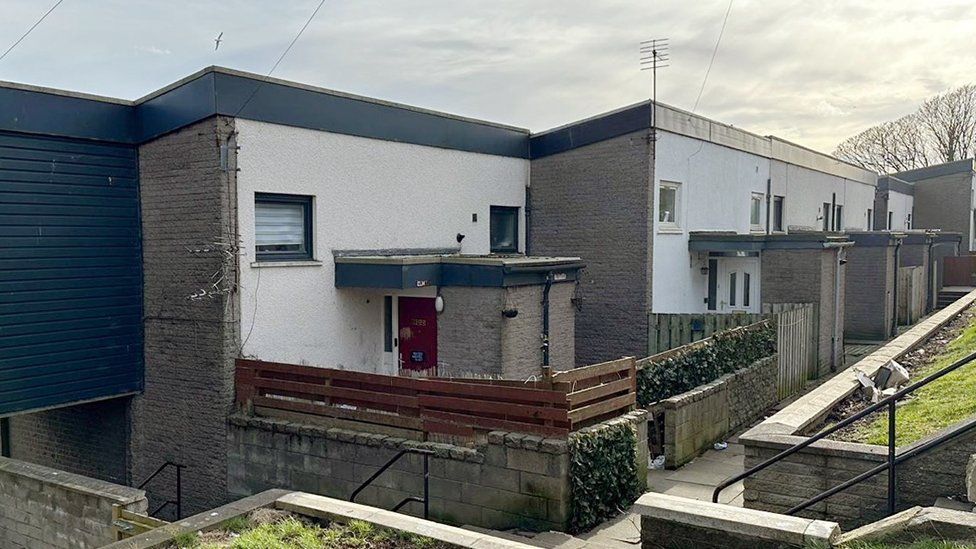
The concrete was found in homes in Aberdeen’s Balnagask area
Hundreds of people are being moved out of their council homes in Aberdeen after they were found to contain potentially dangerous concrete panels.
Thousands of council homes in Aberdeen were checked for the presence of reinforced autoclaved aerated concrete (RAAC).
It was found to be in about 500 homes in the city’s Balnagask area, including 364 council properties.
The council said it was doing everything it could to support tenants.
BBC Scotland News understands the council hopes the majority of council tenants will be rehomed by the end of the summer.
Sixty five of the council properties are currently unoccupied.
RAAC is a cheap version of concrete that was used mostly in construction between the 1950s and 1990s.
It has a lifespan of about 30 years and concerns have mounted about the impact of water ingress on its safety.
The Health and Safety Executive said it was now beyond its lifespan and may “collapse with little or no notice”.
In Aberdeen, an independent structural engineers’ report recommended that council tenants should be relocated to alternative accommodation within the city as soon as possible.
Councillors on Thursday’s urgent business committee on Thursday accepted that tenants should be permanently rehomed.
Council officers are currently exploring options for the long-term viability for the site, which include remedial works or demolition.
A detailed appraisal will be presented to the council within six months.
Councillor Miranda Radley, convener of the communities, housing and public protection committee, said: “This is an incredibly difficult situation for everyone living in a RAAC-affected property, but the council will be doing everything we can to support our tenants during this hugely challenging time.
“These are people’s homes and we need to ensure we support our tenants, but also engage with owners and privately rented tenants, to keep them informed on this matter.”
Councillors agreed to set aside an initial £3m to cover the rehoming programme.
As of December, 2023 The number of social landlord homes across Scotland identified with RAAC was 1,150 and the number under investigation that may have RAAC present was 29,572.








